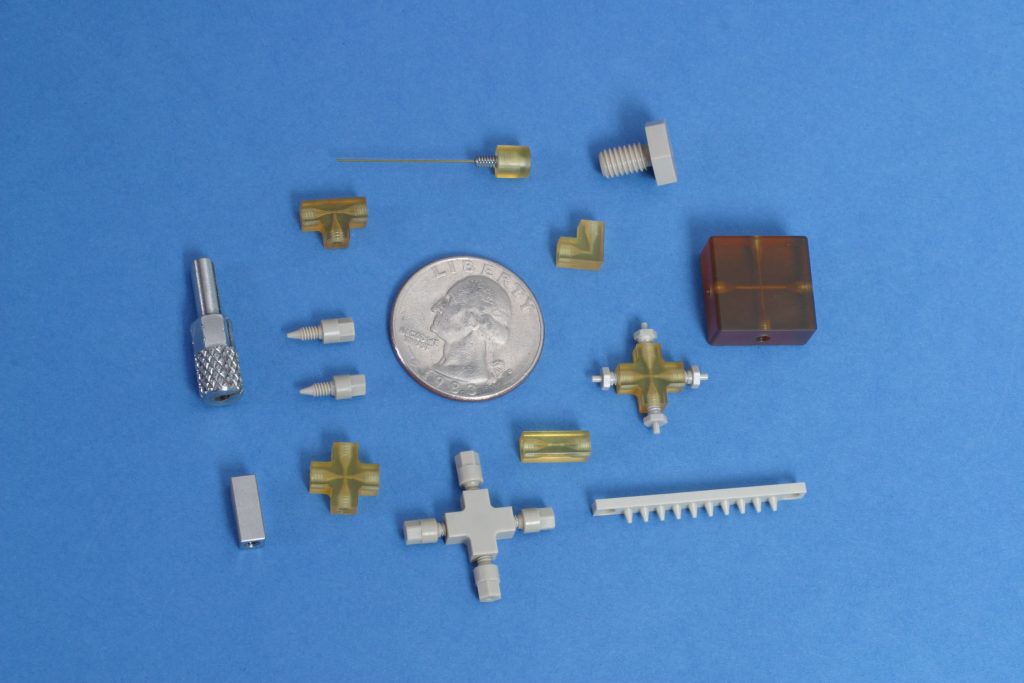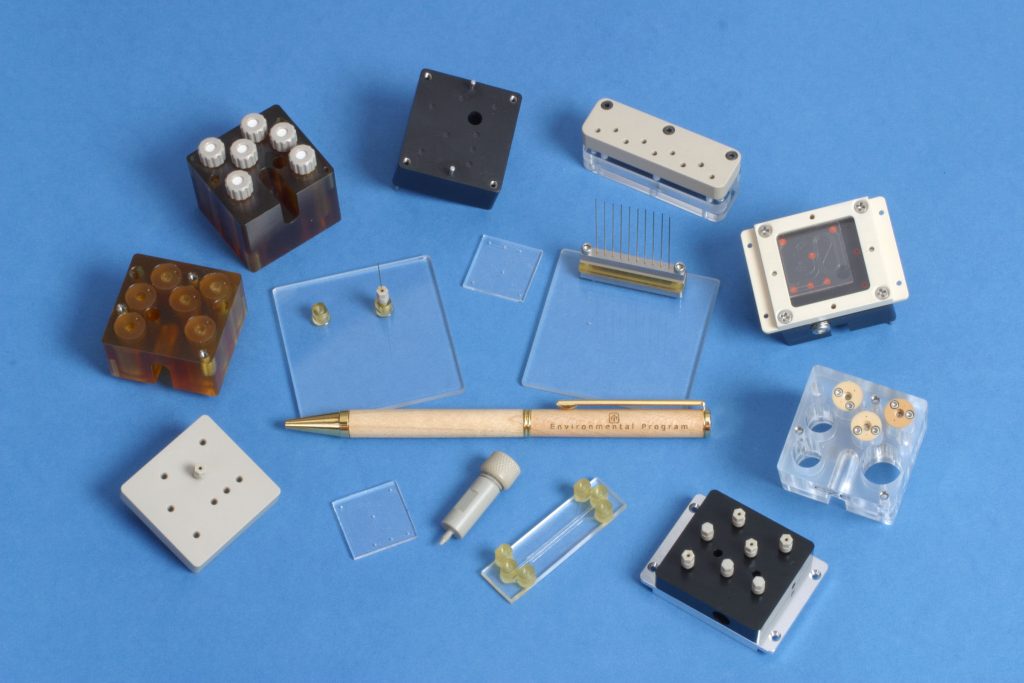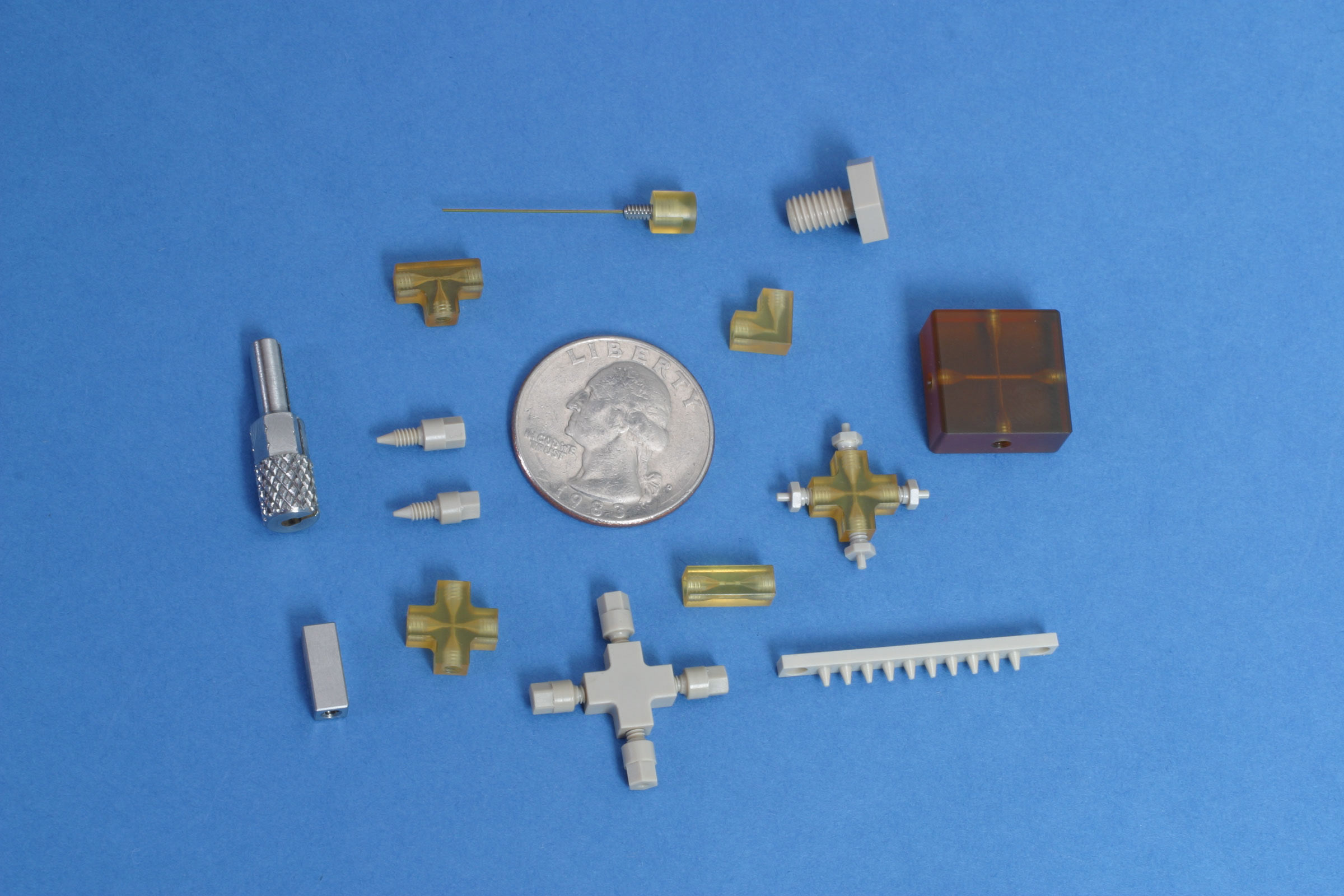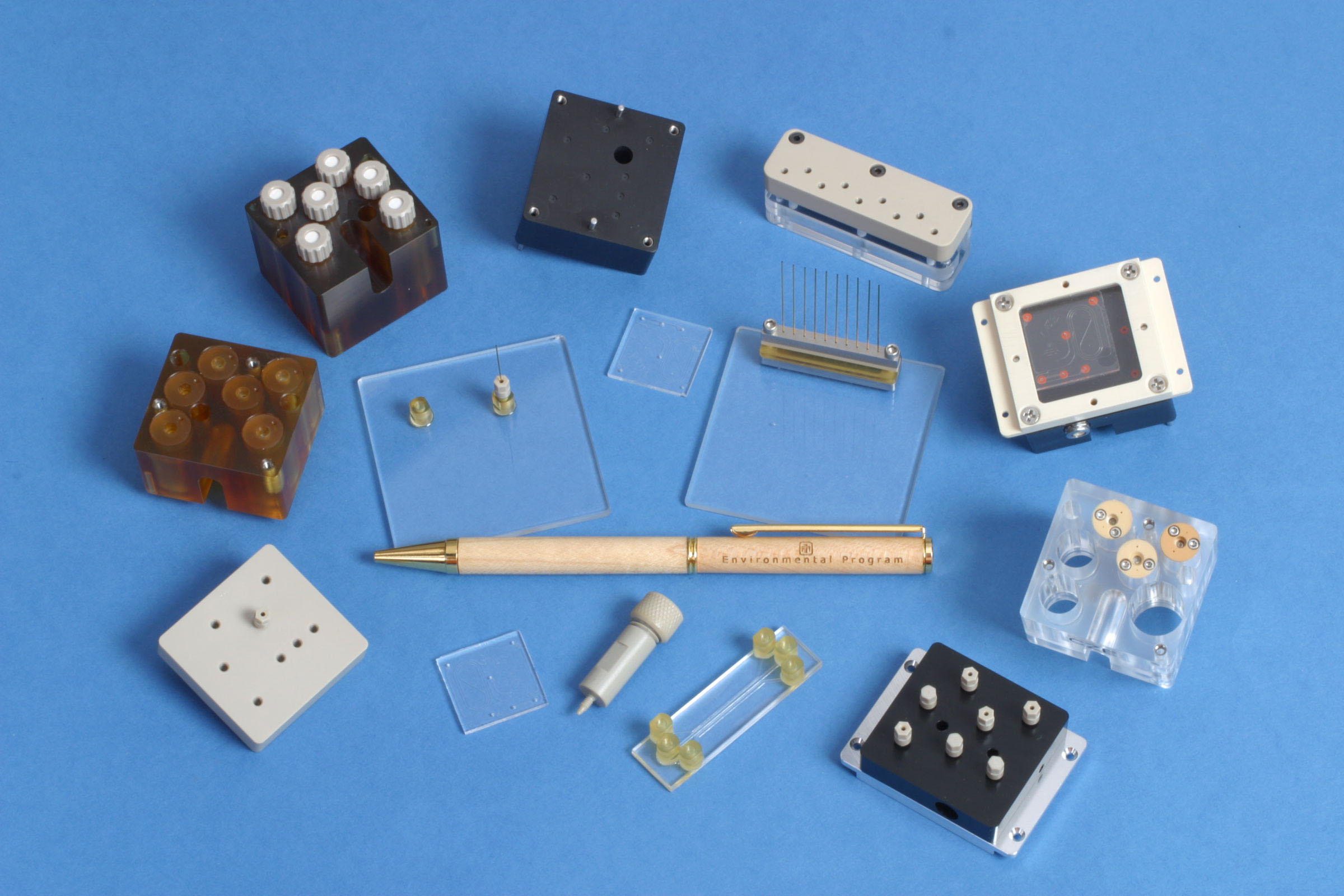
LIVERMORE, Calif. — Pursuing commercialization of technologies spawned by its highly successful µChemLab™ project, Sandia National Laboratories is actively soliciting industry partners to license, manufacture, and sell a unique suite of microfluidic connection products.
Two distinct portfolios are being offered for licensing: The CapTite™ collection of capillary fittings, which is based on an exclusive one-piece ferrule; and the Chip-Tite™ series of manifolds and interconnects, which is fully compatible with CapTite™.
Microfluidic and lab-on-a-chip products are expected to provide superior benefits in many important and growing markets. The CapTite™ fittings and manifolds have the potential to find broad application in the existing research community as well as in many emerging markets, including proteomics, genomics, HPLC, micro-mechanical and micro-hydraulic assemblies.
In a market research study published earlier this year, Frost & Sullivan suggested that the microfluidics industry is also likely to benefit from the technological progress in complementary areas such as semiconductors and health care. Lab-on-a-chip devices are expected to eventually provide multiplexing and lower overall price for research, routine, and diagnostic testing. The overall market for microfluidics/lab-on-a-chip products, says the Frost & Sullivan study, is forecast to experience a rate of growth of 33.1 percent by 2008, or $710 million.

The CapTite™ collection is designed around a unique one-piece ferrule that eliminates sealing sleeves while providing unprecedented pressure capabilities up to 40,000 psi. These low-cost connectors are designed to be the smallest size easily finger tightened, and provide reliable, clean, reusable seals in a wide variety of materials. The complementary Chip-Tite™ series of manifolds and interconnects provides an elegant capillary-to-microchip interface.
Jill Micheau, a business development associate at Sandia, said companies with the technical capability and manufacturing capacity to produce these devices for government and commercial applications are encouraged to contact Sandia for information on licensing. “These micro-scale machined junctions offer a modular solution to microfluidic designs and consistent fluid connections with simple and accurate registration,” she said.
The CapTite™ offering, added Micheau, represents an opportunity to license a product line with the potential to become the standard for use in microfluidic devices that will permeate the pharmaceutical, biotechnology, life science, defense, public health and food and agriculture markets.
Additional information about these fittings and manifolds and other µChemLab™ technologies and partnership opportunities at Sandia may be found at http://www.ca.sandia.gov/industry_partner/MicroChem_partnerships.html or by emailing CA-Partnerships@sandia.gov.


